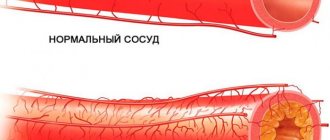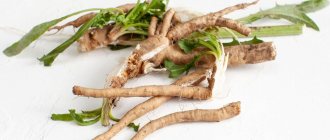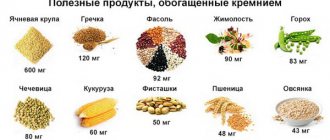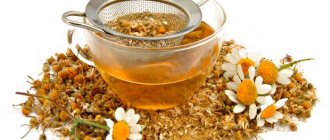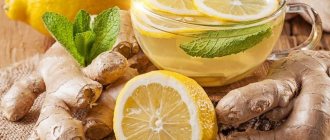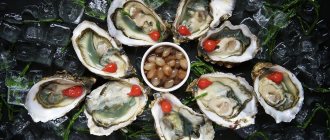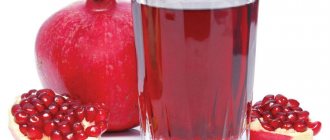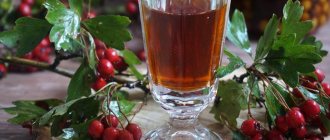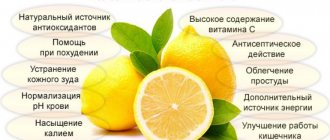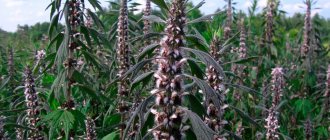Brittle and damaged blood vessels are not only a cosmetic defect, accompanied by the appearance of spider veins, bruises and hemorrhages on the skin, but also a serious health problem. Often brittle, inelastic arteries are the main cause of circulatory disorders in various internal organs.
This problem is important and needs to be treated. A diet to strengthen blood vessels is one of the effective methods as part of complex therapy for the disease. In our review and video in this article, we’ll talk about its general principles, permitted and prohibited products, and also draw up a sample menu for the day.
How to “feed” the arteries and veins so that they are healthy and strong?
Healthy vegetables and fruits
Fruits and vegetables have a unique ability to have a beneficial effect on vascular health, so 2/3 of the diet should consist of vegetables and fruits. They are especially useful for those people who are at risk of developing cardiovascular diseases, as well as for anyone who closely monitors the condition of their veins and arteries.
We wrote in detail about blood thinning products in this article, we recommend you read it.
Lemon
lemons to strengthen blood vessels
Antioxidants, essential oils and vitamins C will be useful not only for sick people, but also for healthy people. Doctors advise consuming lemon on a regular basis, and once a year cleaning blood vessels using lemon therapy. This citrus is not just a storehouse of vitamins. He helps:
- reduce cholesterol levels;
- remove various toxins;
- dissolve fat deposits;
- increase the elasticity of blood vessels and veins.
If you have diseases of the pancreas or stomach, then lemon should be very carefully introduced into your daily menu.
Beet
beets to strengthen blood vessels
This is one of the most necessary vegetables for a person’s well-being, especially if he suffers from a disease such as atherosclerosis. In any form (raw or boiled), beetroot dishes are useful for everyone who wants:
- cleanse the arteries and improve the condition of blood vessels and blood;
- help reduce blood pressure;
- reduce swelling and reduce excess weight;
- strengthen the heart muscle.
If you take raw beet juice for 2-4 weeks, your cholesterol will noticeably decrease. In addition, your overall well-being will noticeably improve.
Celery
celery to strengthen blood vessels
In order to use this root vegetable for medicinal purposes, you should eat not only the root itself, but also the green cuttings. The underground part of the fruit is used for hot dishes, and the stems are added to salads. Celery has a beneficial effect on blood vessels, which is characterized by:
- normalization of blood sugar levels;
- lowering blood pressure and improving vascular function;
- strengthening the walls of arteries.
It is important to note that the use of celery as a medicine is undesirable if the patient is diagnosed with venous varicose veins.
Pumpkin
pumpkin to strengthen blood vessels
This vegetable is simply indispensable for maintaining healthy blood vessels and the heart. Pumpkin can be consumed in any form: baked, stewed, boiled and even raw. Juice from pumpkin pulp is no less useful. The orange-red vegetable has such beneficial properties as:
- helps reduce cholesterol;
- promotes the removal of toxins from the body;
- fights excess weight;
- Thanks to its vitamin composition, it strengthens and nourishes the heart muscle.
Pumpkin is a very healthy and versatile fruit; it is considered a dietary product and has virtually no contraindications for consumption. In rare cases, individual intolerance to pumpkin dishes occurs, however, in general, it is a hypoallergenic vegetable.
Garlic
garlic to strengthen blood vessels
This spice is often used to treat the cardiovascular system, as it is considered a storehouse of useful substances. With garlic you can:
- lower blood pressure and normalize blood sugar levels
- prevent blood cells from sticking together;
- clean blood vessels, dissolving cholesterol plaques.
Garlic has long been known as a product that helps strengthen the heart, so its use is beneficial even after heart attacks. The main thing is not to overdo it and introduce this vegetable into your diet gradually.
However, we must not forget that it has a number of contraindications:
- gastrointestinal diseases and increased acidity;
- renal failure;
- pregnancy and lactation.
Onion
onions to strengthen blood vessels
Absolutely all of its varieties are incredibly useful for maintaining immunity and strengthening body systems. Onions have a particularly beneficial effect on the condition of blood vessels:
- reduces cholesterol levels;
- helps eliminate plaques;
- strengthens the walls of capillaries.
Onions contain a huge amount of microelements and vitamins. But it is important to consider that this vegetable can also increase the activity of the heart muscle, stimulate the nervous system and increase blood pressure. Therefore, hypertensive patients should use this product more carefully in their daily menu.
Ginger
ginger to strengthen blood vessels
This fruit is no less healthy and rich in minerals, vitamins, essential oils and amino acids than onions and garlic traditional for Russian cuisine. It has unique healing properties, as it allows:
- strengthen the heart muscle;
- relieve spasms in the blood vessels of the brain;
- thin the blood;
- rejuvenate all organs and systems of the body;
- cleanse blood vessels of cholesterol and fat deposits.
Considering that ginger is a fairly powerful remedy, it should not be used for acute forms of angina pectoris or coronary artery disease. Patients who have suffered a stroke or heart attack should also be careful when using ginger dishes in their menu.
Horseradish
horseradish to strengthen blood vessels
This root is used both in cooking and in folk medicine as a warming and anti-inflammatory agent. This product for strengthening heart vessels contains useful components such as essential oil, vitamins and minerals. Not only the rhizome, but also the leaves of horseradish are famous for their rich composition. With their help you can:
- lower blood pressure;
- clear arteries;
- start stimulation of metabolic processes.
Despite the pungent taste and smell of the fruit, it is useful for almost everyone, with the exception of: pregnant women, nursing mothers, people with chronic diseases of the gastrointestinal tract, kidneys and liver.
Licorice
The composition of licorice is unique. These are about 30 flavonoids, more than a dozen different chemical elements, essential oils, pectins, monosaccharides, disaccharides, tannins and a number of other substances beneficial to the human body.
The underground part is used for medicinal purposes. It is harvested in March or November. A 4-year-old plant is considered the most useful. The roots remain effective for 10 years.
Licorice enhances the body's protective functions and helps resist the negative effects of the environment. Has antidepressant properties. Helps with chronic fatigue and normalizes the activity of the nervous system.
Contraindications
- high blood pressure
- heart failure
- venous insufficiency
- pregnancy
Reference! Long-term use of licorice root may cause swelling.
Berries
All varieties contain a huge amount of beneficial substances. That is why they are actively used for medicinal purposes.
Kalina
Viburnum for strengthening blood vessels
As a prevention of cardiovascular diseases and strengthening the walls of blood vessels, it is better to use the color and bark of this shrub. Dried berries are also suitable for use. Its beneficial properties:
- strengthening the heart and blood vessels;
- lowering blood pressure;
- saturating the body with vitamin C.
Dosed use of viburnum for medicinal purposes is recommended for those people who are prone to hypotension and vein thrombosis.
Cranberry
cranberry to strengthen blood vessels
This is not only a natural concentrate of beneficial substances, but also a unique natural antioxidant. Swamp berry has a number of useful qualities:
- reduces blood cholesterol levels;
- helps in thinning the blood;
- helps strengthen the heart muscle.
Important: if you have problems with the gastrointestinal tract and liver, you should first consult your doctor.
Rowan
rowan to strengthen blood vessels
Not only the berries themselves, but also the leaves of the tree are an excellent vitamin remedy for restoring energy. Eating dried fruits is good for the heart and blood vessels .
It is recommended to use the tincture for hypotension.
The use of mountain ash preparations is prohibited for people suffering from coronary artery disease and those who have recently suffered a heart attack.
Rose hip
The high content of flavonoids and ascorbic acid makes rose hips an indispensable natural remedy for diseases of the circulatory system. These substances protect the body from free radicals.
The anti-sclerotic properties of rose hips have a beneficial effect on angina pectoris, transient cerebrovascular accidents, ischemic encephalopathy, and post-infarction conditions.
Taking rose hips improves blood microcirculation, strengthens the walls of blood vessels, regulates carbohydrate metabolism, promotes the production of hemoglobin, and removes “bad” cholesterol.
Contraindications:
- thrombophlebitis;
- pancreatitis;
- ulcer of the duodenum and stomach;
- diabetes;
- chronic gastritis with high acidity;
- tendency to allergies.
Reference! Long-term continuous use may cause various adverse reactions. They are individual for each person.
Beverages
Anyone who cares about their health will benefit from the following drinks to strengthen the walls of blood vessels .
Green tea
green tea to strengthen blood vessels
An incredibly beneficial product for blood vessels. It helps reduce the concentration of cholesterol in the blood and cleanse the walls of the arteries.
Green tea contains a large amount of caffeine, which can increase blood pressure. In this regard, doctors have many disputes about the benefits of its use. However, recent studies suggest that the use of green tea in the diet is beneficial even for hypertension.
The main thing is that the amount of drink per day does not exceed two cups.
Coffee
coffee to strengthen blood vessels
No cardiologist has yet given an accurate assessment of its effect on the vascular system. However, experience shows that coffee beans help in the fight against migraines. It has also been proven that hot aromatic coffee helps normalize the blood vessels of the brain.
At the same time, it is necessary to dose the consumption of this drink, and hypertensive patients should avoid it altogether.
Dry red wine
Since ancient times, it has been considered a healing product if used in small quantities. Dry red wine can:
- increase the amount of nitrogen in the blood, which will reduce blood pressure;
- reduce the content of endophelin protein;
- maintain youth and vascular tone, thanks to the content of antioxidants.
It is better to choose dry branded varieties. Sugary drinks can increase blood pressure. In addition, they practically do not provide any benefit to the body.
Cognac
This alcoholic drink has similar beneficial properties as dry red wine. A small dose helps:
- dilate blood vessels;
- prevent the formation of fatty deposits;
- make blood vessels more elastic.
All the beneficial properties of cognac will work only with dosed consumption of no more than 30-50 ml per day.
Other products
Honey
honey to strengthen blood vessels
With age, the human body increasingly needs the use of this product, since it:
- nourishes the heart with living energy;
- helps reduce blood density;
- strengthens the heart.
When using honey for medicinal purposes, it is better not to mix it with other foods containing sugar.
Nuts
They have a huge concentration of useful substances, help nourish the muscles of the heart and have a beneficial effect on the walls of veins, capillaries and arteries.
They are very high in calories, as they contain a large amount of natural oils. Therefore, their use should be in limited quantities.
Linseed oil
flaxseed oil to strengthen blood vessels
For the beneficial effects of this product on the body, there is one important condition - the oil must be fresh. It helps:
- reduce the level of “bad” cholesterol;
- prevent the formation of blood clots in the veins;
- make the walls of blood vessels elastic.
Added to various salads or consumed in pure form (1 tsp before breakfast).
Olive oil
Prevents the formation of blood clots, which means it prevents heart attacks and strokes. It can also be added to salads or taken in its pure form.
Propolis
propolis to strengthen blood vessels
This product is often found in various tinctures. Its benefits lie in the following properties:
- preventing the formation of blood clots;
- giving elasticity to blood vessels;
- decreased lipid oxidation;
- healing and regeneration of tissues of the cardiovascular system.
Folk recipes
Traditional medicine also allows for periodic healing of blood vessels using cleansing tinctures and decoctions from available plant materials. Honey, lemon, garlic, berries, nuts, dried fruits and herbs are especially popular in such medicinal recipes.
This original recipe allows you to prepare the drug very quickly. Take it in the morning on an empty stomach.
- Peel and puree a clove of garlic.
- Wash and chop half a lemon with the peel, after removing all the seeds.
- Mix the ingredients in a glass container, add a teaspoon of honey, a small pinch of dry wormwood or a sprig of fresh one. Pour a glass of warm water.
- Cover tightly with a lid and leave in a warm place for half an hour.
- Then add a teaspoon of unrefined cold-pressed olive oil and drink on an empty stomach in the morning, 30 minutes before breakfast.
This drink is taken continuously, if intolerance does not appear, for at least a month. During this time, the composition of the blood should noticeably improve, and the lumens of the bloodstream should clear. If tinnitus and dizziness have disappeared, sleep has improved, and pressure surges have stopped tormenting you, then the cleansing process has gone well.
The course can be repeated after a break of 1-2 months.
General rules for eating foods
A properly formulated diet to maintain arteries and veins in good condition is not difficult. The main thing is to know the general principles of a healthy diet that is useful for strengthening the vascular system:
- reducing the amount of fatty meat and dairy products in the diet;
- preference for fermented milk products;
- replacing animal fats with unrefined vegetable oils;
- reducing the amount of salt consumed in food;
- reducing calories in ready meals;
- increasing the amount of greens and vegetables in the diet;
- adding whole grain cereals to the daily menu;
- dividing meals into several times (should be 4-5 times a day);
- drinking purified water.
Strengthening weak blood vessels
The main causes of vascular weakness are dietary errors, an unbalanced diet, a sedentary lifestyle, and various bad habits.
To strengthen blood vessels it is necessary:
- stop drinking alcohol and smoking;
- take care of a balanced menu;
- walk more often;
- workout;
- take contrast showers more often;
- drink enough plain clean water.
If the vessels are already in a rather neglected state, then all the measures mentioned above may not be enough. In such cases, doctors and medicines come to the rescue.
What foods are best to avoid?
To strengthen the vascular system, it is important to limit the consumption of certain foods:
- dairy products and fatty meat dishes;
- smoked meats, semi-finished products, fast food;
- foods high in sugar;
- marinades and salt in large quantities;
- alcohol in excess of the norm;
- strong coffee and tea.
If you study the beneficial properties of foods and follow the rules for their use, you can easily provide your body with useful substances that will prolong youth and help maintain vigor and activity for many years!
Example of a daily menu for diet No. 10
Here's what your menu might look like if you follow diet No. 10:
- Breakfast (8 a.m.)
– cottage cheese with sour cream, semolina or rice porridge with water or milk, bread and butter, tea with milk. - Snack (10 am)
– a glass of kefir or yogurt, fruit. - Lunch (12 hours)
- pureed vegetable soup, steamed turkey meatballs, porridge, baked apple. - Afternoon snack (15:00)
– one-egg omelette, applesauce, rosehip drink. - Dinner (18:00)
– buckwheat or vegetable cutlet, cottage cheese pudding or potatoes with boiled fish and jelly.
